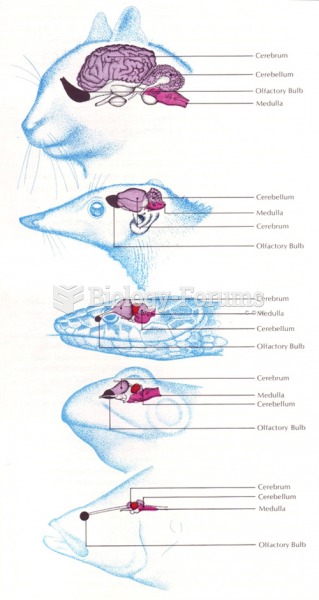|
|
|
Asthma cases in Americans are about 75% higher today than they were in 1980.
Signs and symptoms that may signify an eye tumor include general blurred vision, bulging eye(s), double vision, a sensation of a foreign body in the eye(s), iris defects, limited ability to move the eyelid(s), limited ability to move the eye(s), pain or discomfort in or around the eyes or eyelids, red or pink eyes, white or cloud spots on the eye(s), colored spots on the eyelid(s), swelling around the eyes, swollen eyelid(s), and general vision loss.
Allergies play a major part in the health of children. The most prevalent childhood allergies are milk, egg, soy, wheat, peanuts, tree nuts, and seafood.
Acetaminophen (Tylenol) in overdose can seriously damage the liver. It should never be taken by people who use alcohol heavily; it can result in severe liver damage and even a condition requiring a liver transplant.
More than 4.4billion prescriptions were dispensed within the United States in 2016.
 Defensive mutualism involves species that receive food or shelter in return for providing protection
Defensive mutualism involves species that receive food or shelter in return for providing protection
 Boreal forests, such as this one in Siberian Russia, are dominated by a few species of conifer trees
Boreal forests, such as this one in Siberian Russia, are dominated by a few species of conifer trees




